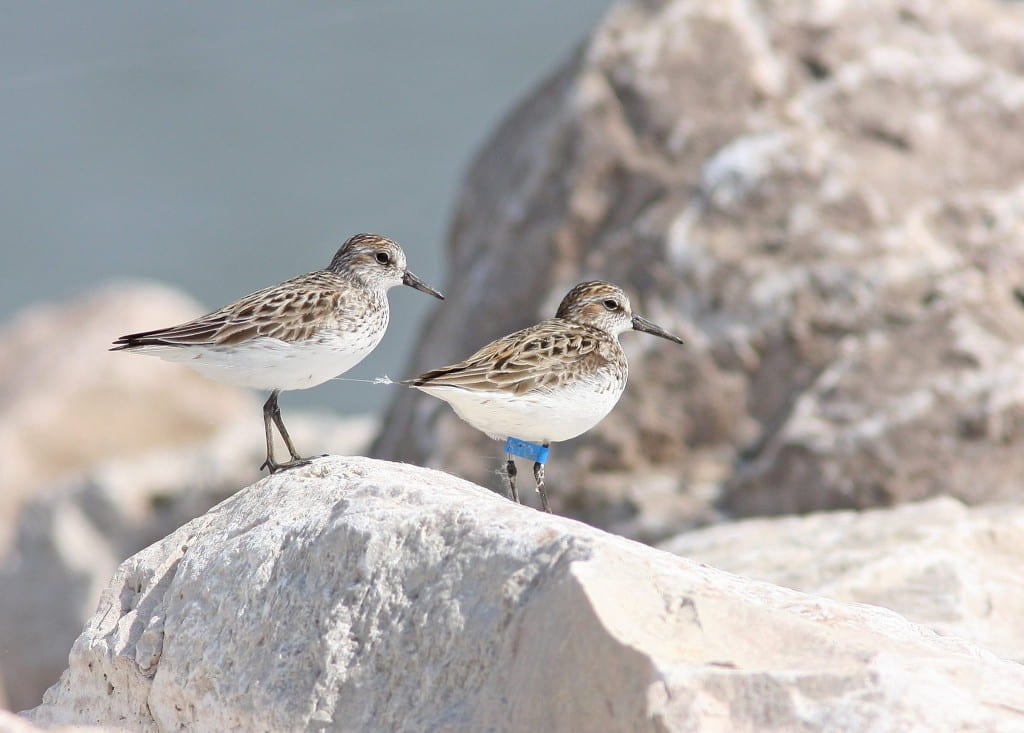Adopt a Launch Flourishing in Northeast Wisconsin
24 Launches Adopted, More on the Way Have you heard of the Adopt a Launch Program at Fox-Wolf? Concerned local water lovers are volunteering to take care of their favorite boat launches. From individuals to groups to businesses, your friends and neighbors are stepping up to help out. In 2025, five new launches have [...]
The post Adopt a Launch Flourishing in Northeast Wisconsin appeared first on Fox-Wolf Watershed Alliance.
Fox-Wolf Watershed Alliance
https://fwwa.org/2025/07/16/adopt-a-launch-flourishing-in-northeast-wisconsin/?utm_source=rss&utm_medium=rss&utm_campaign=adopt-a-launch-flourishing-in-northeast-wisconsin

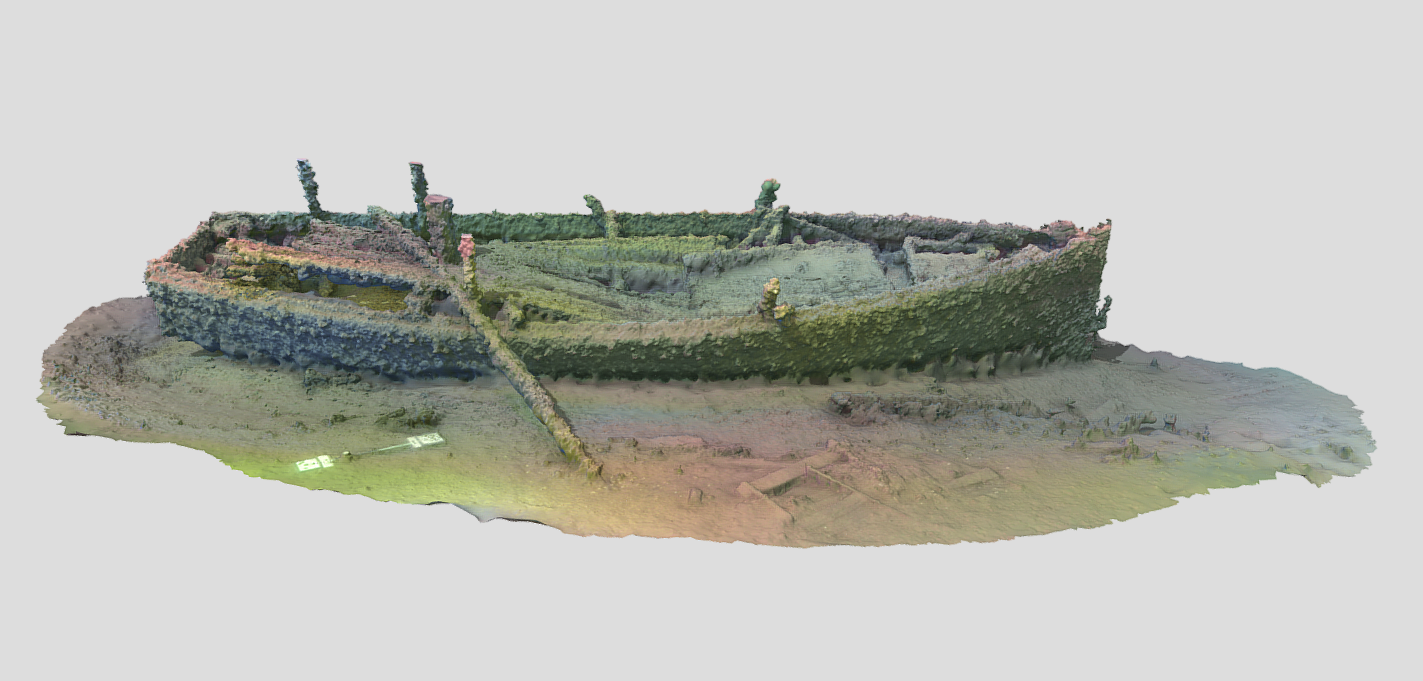
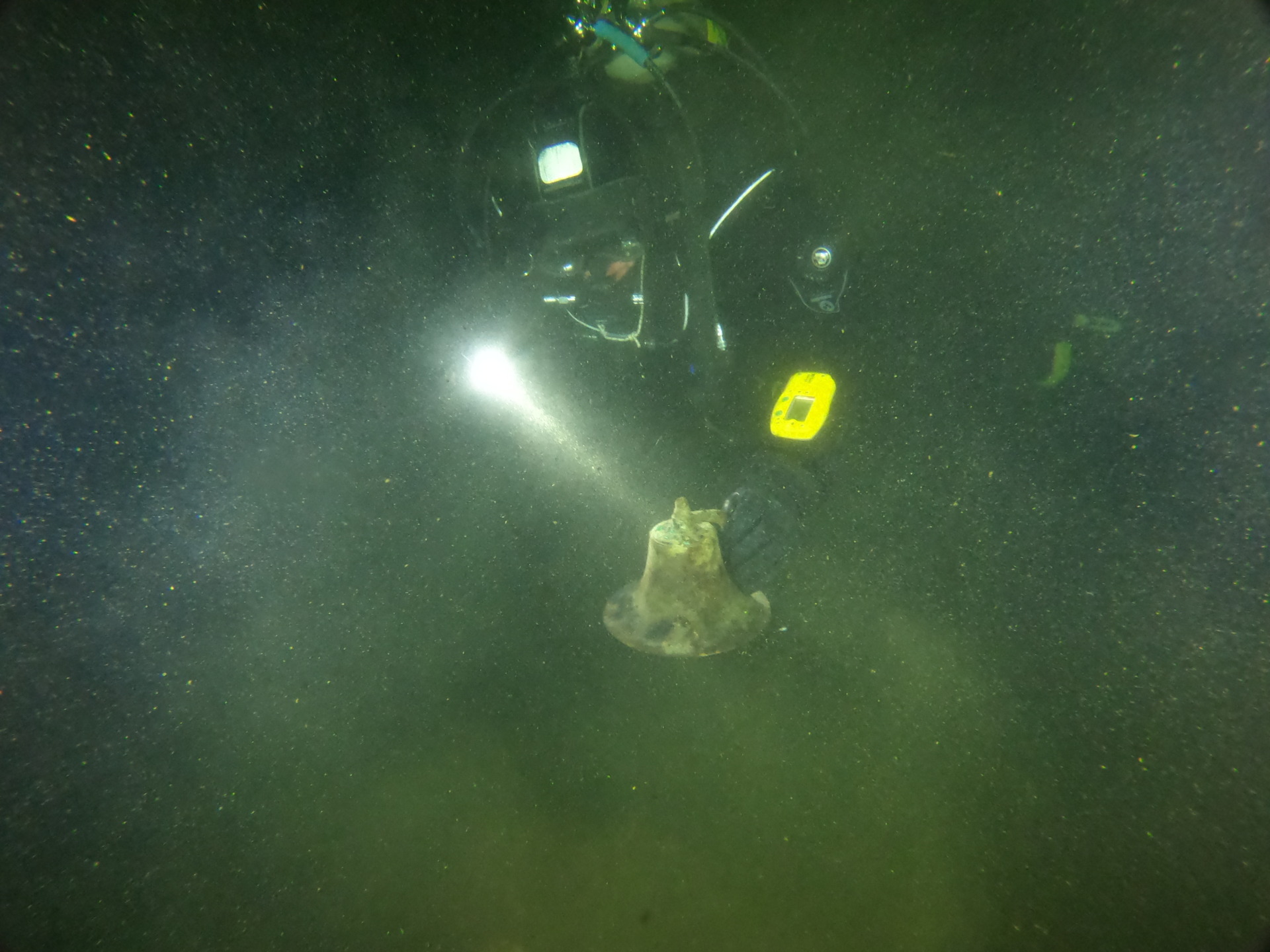
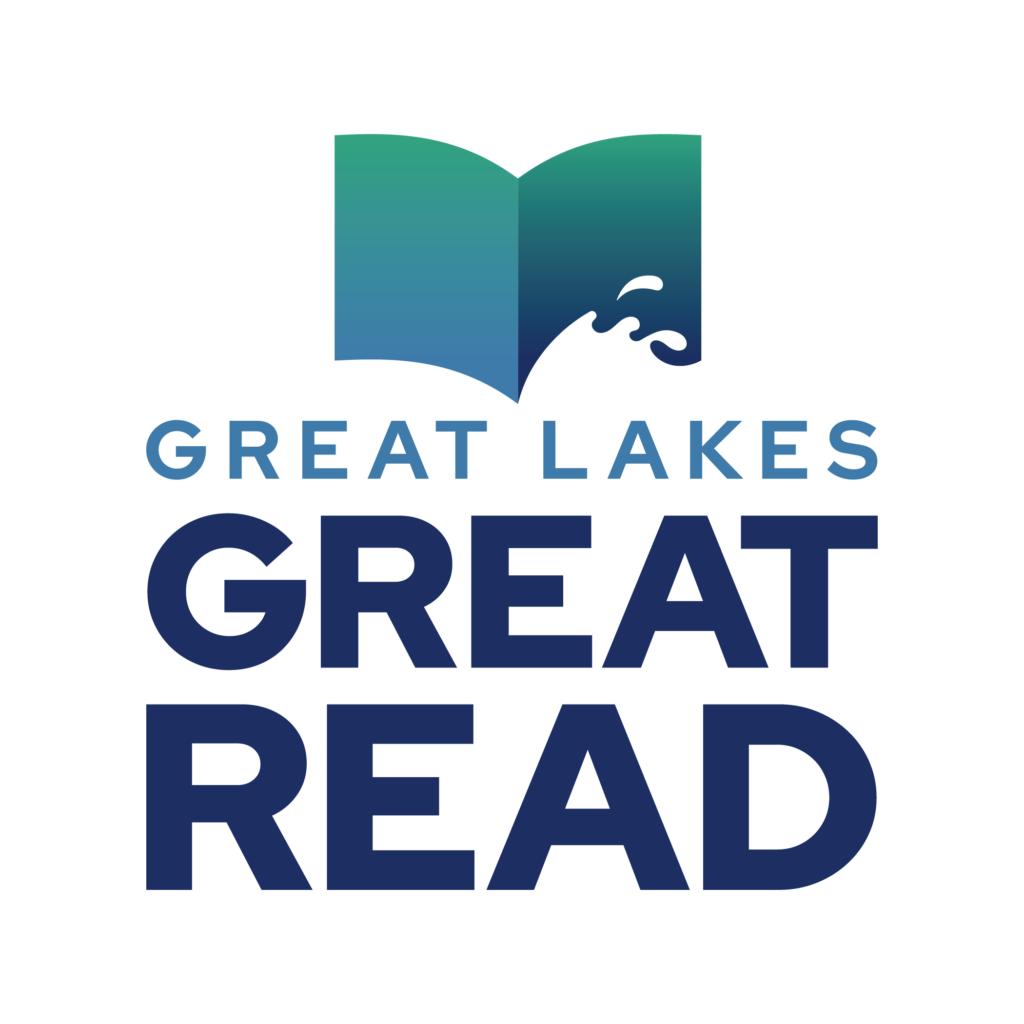 Explore the intersection of science and writing about the Great Lakes during a science café at 6-9 p.m., Nov. 8, Paradise North Distillery (101 Bay Beach Road, Suite 5) in Green Bay.
Explore the intersection of science and writing about the Great Lakes during a science café at 6-9 p.m., Nov. 8, Paradise North Distillery (101 Bay Beach Road, Suite 5) in Green Bay.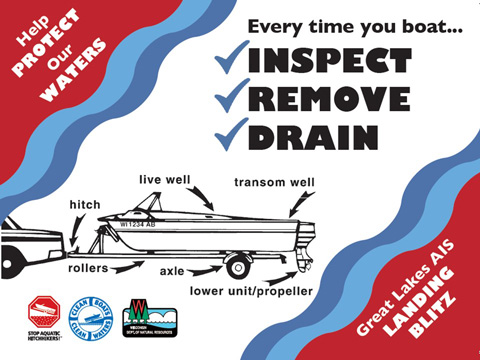 annual Landing Blitz campaign runs June 26th – July 6th, 2024. Clean Boats, Clean Waters (CBCW) boat inspectors and educators will meet boaters at lake and river launches to remind them that by taking simple prevention steps, we all play a vital role stopping the spread of aquatic invasive species (AIS) like zebra mussels.
annual Landing Blitz campaign runs June 26th – July 6th, 2024. Clean Boats, Clean Waters (CBCW) boat inspectors and educators will meet boaters at lake and river launches to remind them that by taking simple prevention steps, we all play a vital role stopping the spread of aquatic invasive species (AIS) like zebra mussels.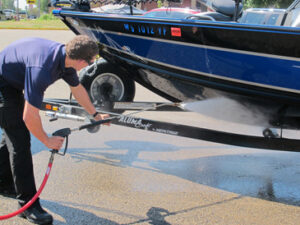
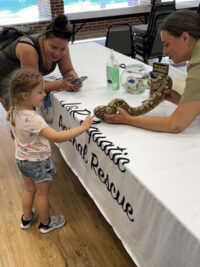
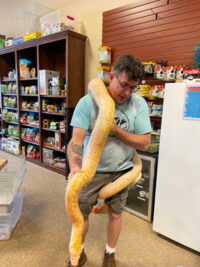 unable to care for their pet may think that releasing the animal is the right thing to do, however, releasing a pet is harmful for the animal and the environment.
unable to care for their pet may think that releasing the animal is the right thing to do, however, releasing a pet is harmful for the animal and the environment.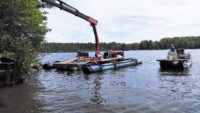 strategy. Simply put, an ounce of prevention is worth a pound of cure. But if only it were just that simple. The variables and situations that can impact a waterbody may seem so limitless that it can be daunting to know where to start. As a lake resident, you might consider questions such as:
strategy. Simply put, an ounce of prevention is worth a pound of cure. But if only it were just that simple. The variables and situations that can impact a waterbody may seem so limitless that it can be daunting to know where to start. As a lake resident, you might consider questions such as: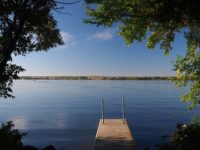 transporting and spreading AIS without proper decontamination. While everyone is required to “inspect, remove, and drain” per Wisconsin State Statutes NR40, these steps might not always be 100% effective especially for high-risk users such as service providers who are often working on multiple lakes in a single day and interacting with lake water and sediment in ways that recreational users are not. These kinds of service providers need to follow the same prevention steps that we all do, but they are not required to take the extended steps, such as spraying equipment with a bleach solution, making it all the more important for consumers to advocate for their lake.
transporting and spreading AIS without proper decontamination. While everyone is required to “inspect, remove, and drain” per Wisconsin State Statutes NR40, these steps might not always be 100% effective especially for high-risk users such as service providers who are often working on multiple lakes in a single day and interacting with lake water and sediment in ways that recreational users are not. These kinds of service providers need to follow the same prevention steps that we all do, but they are not required to take the extended steps, such as spraying equipment with a bleach solution, making it all the more important for consumers to advocate for their lake.


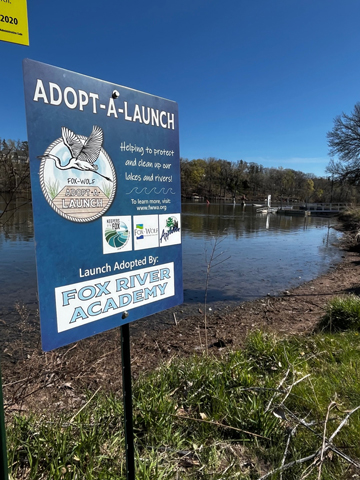
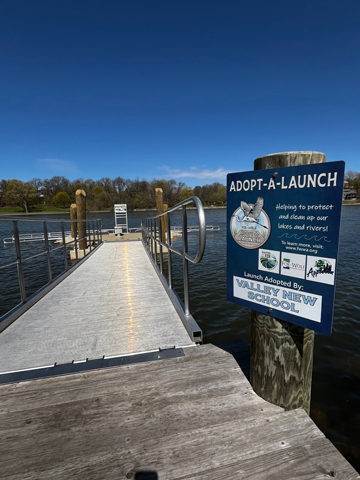
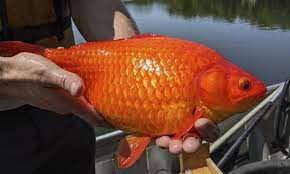
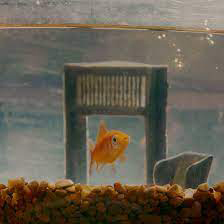 Goldfish were first spotted in Hamilton Harbour in the 1960s, but largely died off in the 1970s because of industrial contamination. In the early 2000s, their population appeared to recover. Goldfish can tolerate a wide range of water temperatures, reach sexual maturation quickly, and can eat nearly anything, including algae, aquatic plants, eggs and invertebrates, Ms. Boston said.
Goldfish were first spotted in Hamilton Harbour in the 1960s, but largely died off in the 1970s because of industrial contamination. In the early 2000s, their population appeared to recover. Goldfish can tolerate a wide range of water temperatures, reach sexual maturation quickly, and can eat nearly anything, including algae, aquatic plants, eggs and invertebrates, Ms. Boston said.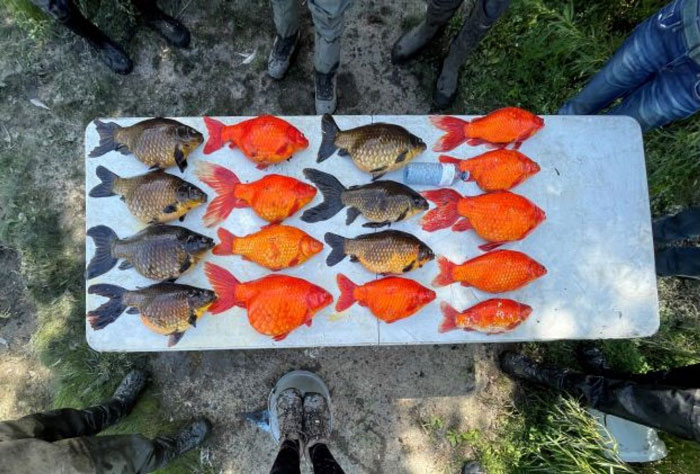
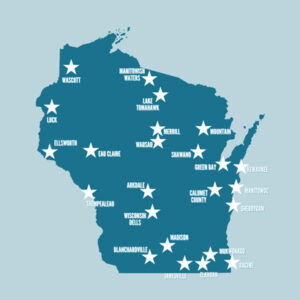 Extension Lakes. Volunteers met at different local rendezvous sites across the state to learn how to identify AIS such as Eurasian watermilfoil, purple loosestrife, and New Zealand mudsnails, and then searched for them in the field at pre-
Extension Lakes. Volunteers met at different local rendezvous sites across the state to learn how to identify AIS such as Eurasian watermilfoil, purple loosestrife, and New Zealand mudsnails, and then searched for them in the field at pre-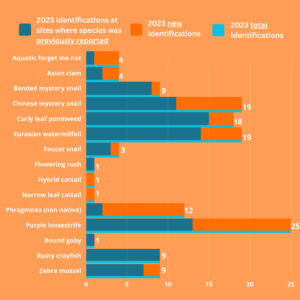 selected locations. Initially focused on rivers and streams, Snapshot Day has expanded to include lakes and wetlands. Findings from Snapshot Day are uploaded to the statewide water quality database, SWIMS, where they can be used to track the spread of invasive species and develop management plans.
selected locations. Initially focused on rivers and streams, Snapshot Day has expanded to include lakes and wetlands. Findings from Snapshot Day are uploaded to the statewide water quality database, SWIMS, where they can be used to track the spread of invasive species and develop management plans.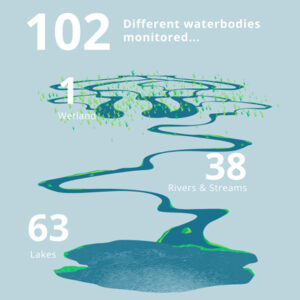 Snapshot Day’s community-based science approach maximizes the number of sites being checked across the state, and the free event allows volunteers to learn about their local waters and how to keep them healthy. As one volunteer stated, “I enjoyed the hands on learning approach. It was helpful to have well informed guides and samples of the invasive species to get a close look at. Once we had a good understanding of what to look for, it was fun to go out and collect samples of what we were finding.”
Snapshot Day’s community-based science approach maximizes the number of sites being checked across the state, and the free event allows volunteers to learn about their local waters and how to keep them healthy. As one volunteer stated, “I enjoyed the hands on learning approach. It was helpful to have well informed guides and samples of the invasive species to get a close look at. Once we had a good understanding of what to look for, it was fun to go out and collect samples of what we were finding.”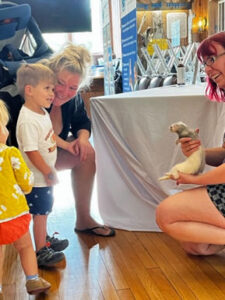
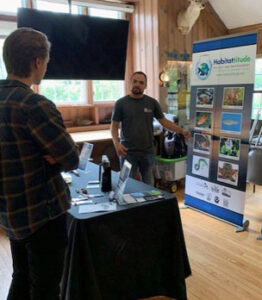 and the environment. Pet Surrender events are now being held across Wisconsin help provide an avenue to pet owners to rehome pets without harming the pet or the environment.
and the environment. Pet Surrender events are now being held across Wisconsin help provide an avenue to pet owners to rehome pets without harming the pet or the environment.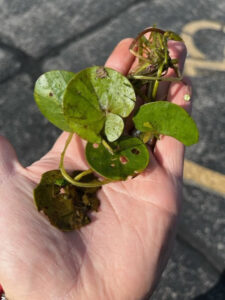 invasive species in the Bay of Green Bay.
invasive species in the Bay of Green Bay. 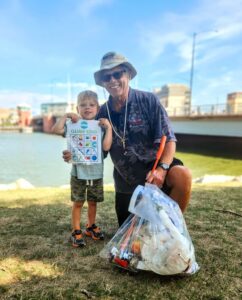 Wolf’s Trash Free Waters program was on site providing program information to concert attendees and
Wolf’s Trash Free Waters program was on site providing program information to concert attendees and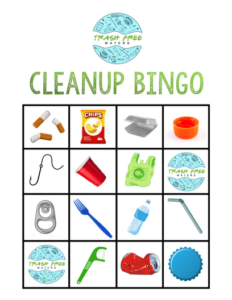 engaging local residents with “Cleanup Bingo”, where volunteers were given a reusable cleanup bingo card, trash grabbers, gloves, and a trash bag, and they set off to clean up litter in the park–hoping to get a “bingo” on their cards. Once they found a trash item from any horizontal, diagonal, or vertical line on the card, the volunteers returned to the Fox-Wolf booth to collect a prize item for their efforts. We had volunteers of all ages cleaning up at Leicht Memorial Park who removed over 12 pounds of trash from this public site.
engaging local residents with “Cleanup Bingo”, where volunteers were given a reusable cleanup bingo card, trash grabbers, gloves, and a trash bag, and they set off to clean up litter in the park–hoping to get a “bingo” on their cards. Once they found a trash item from any horizontal, diagonal, or vertical line on the card, the volunteers returned to the Fox-Wolf booth to collect a prize item for their efforts. We had volunteers of all ages cleaning up at Leicht Memorial Park who removed over 12 pounds of trash from this public site.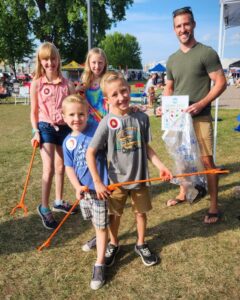
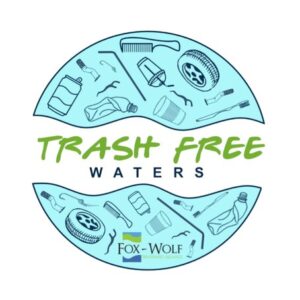
 kelly@fwwa.org
kelly@fwwa.org 920-915-1502
920-915-1502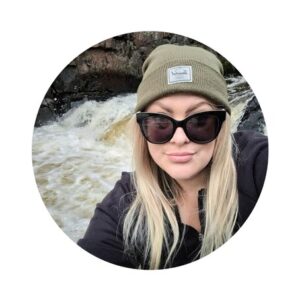
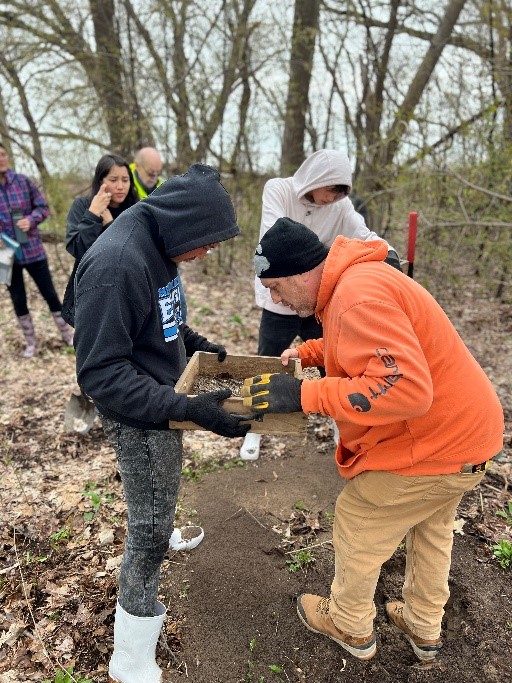
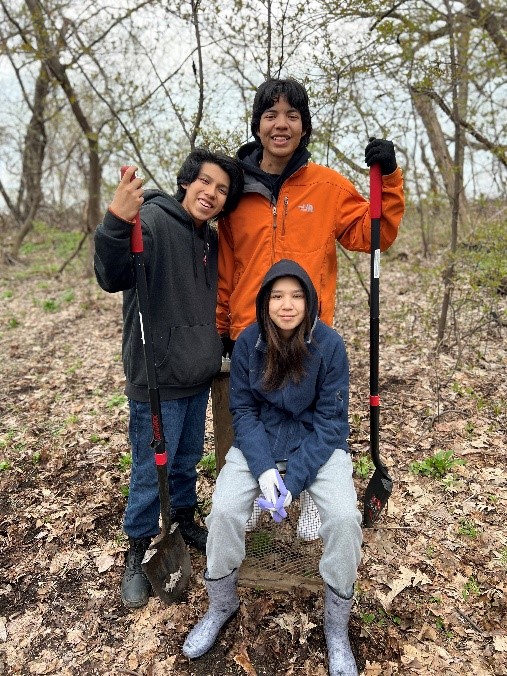
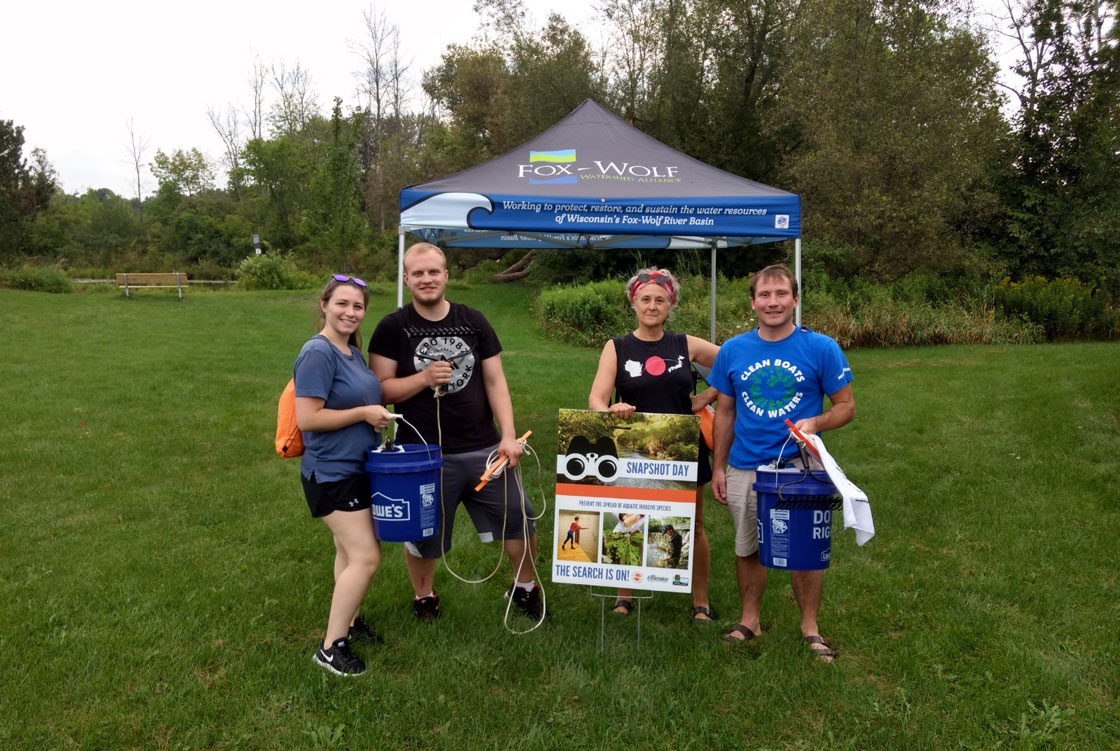 risks to Wisconsin waterways and wildlife. Volunteers have a choice to register at one of over twenty event locations hosted by local conservation groups.
risks to Wisconsin waterways and wildlife. Volunteers have a choice to register at one of over twenty event locations hosted by local conservation groups.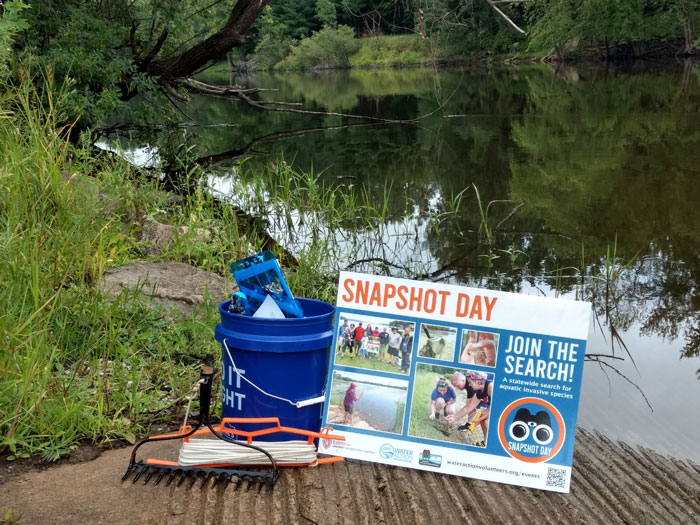

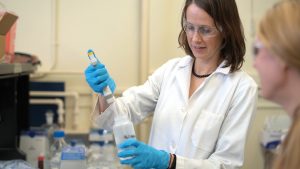
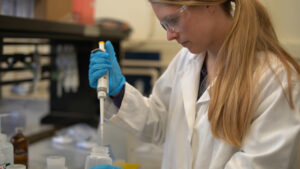
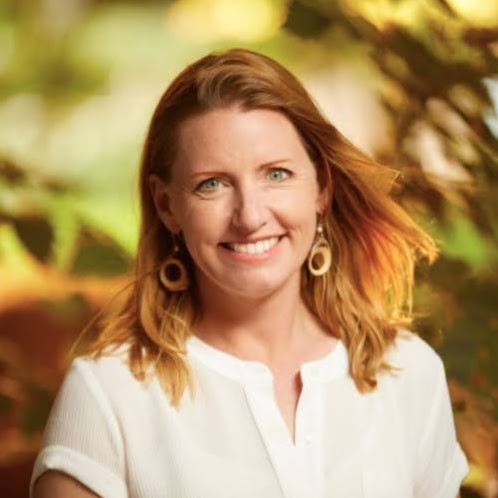
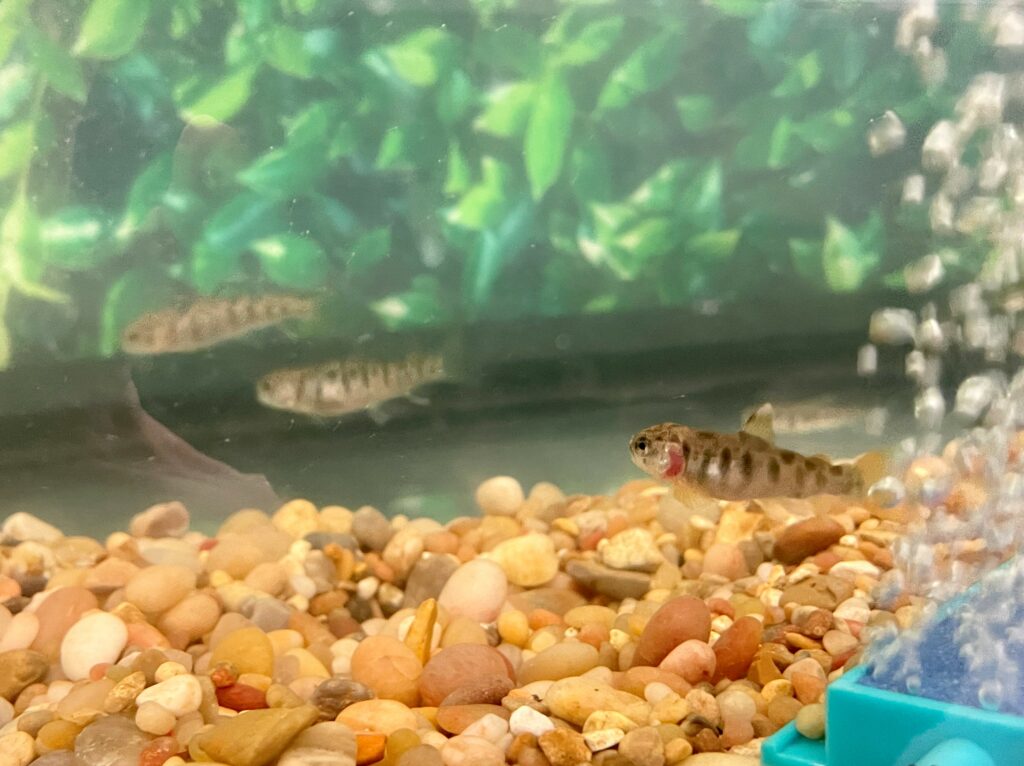
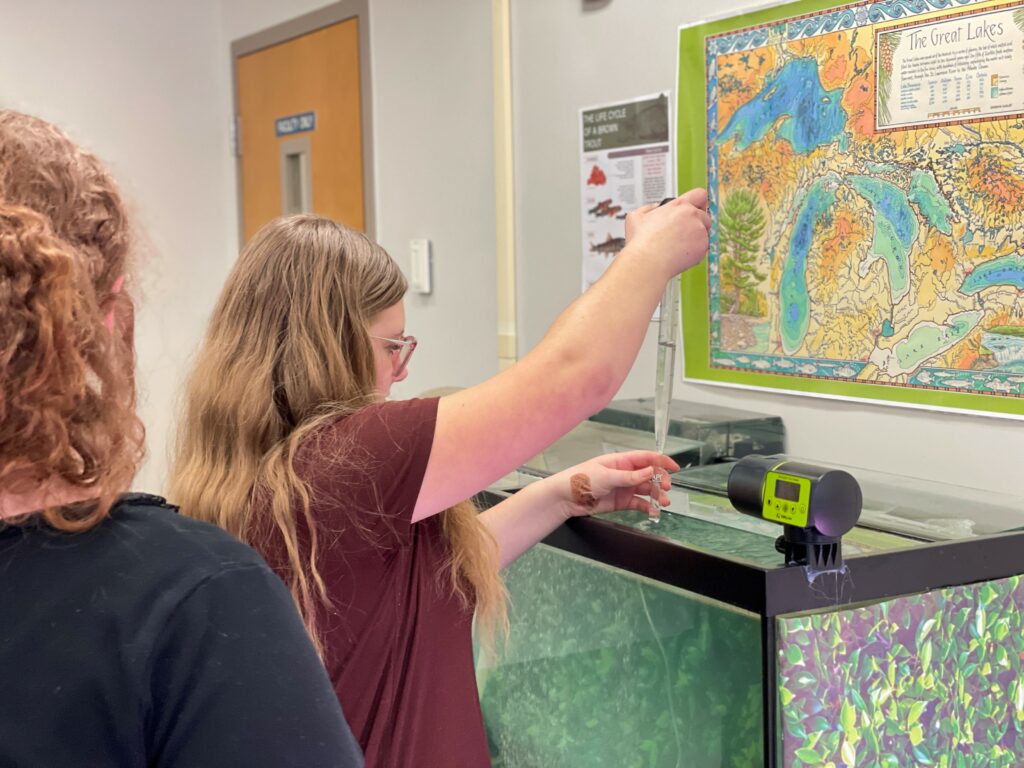
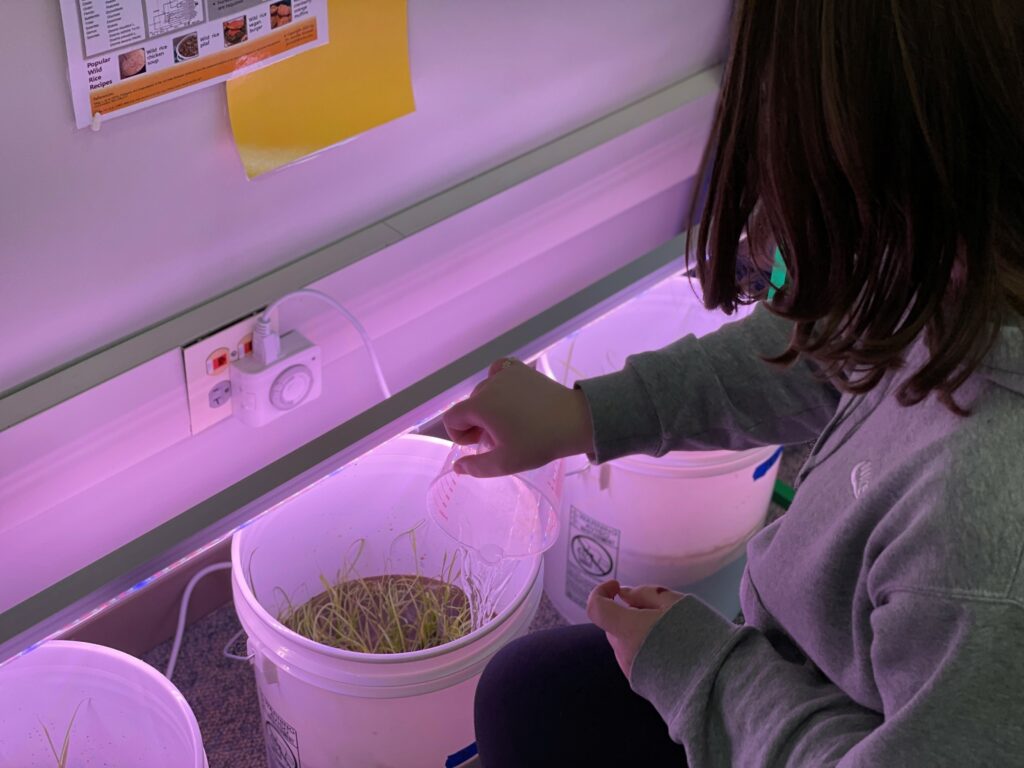
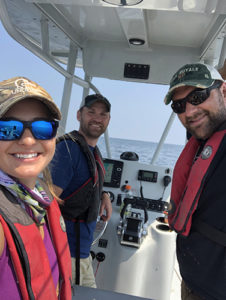
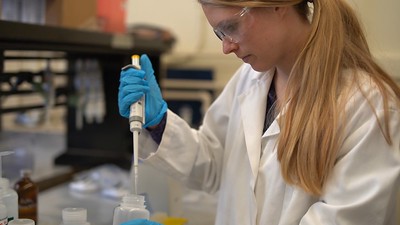
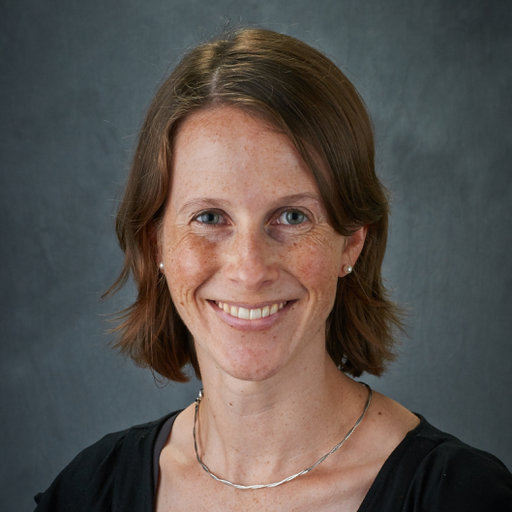
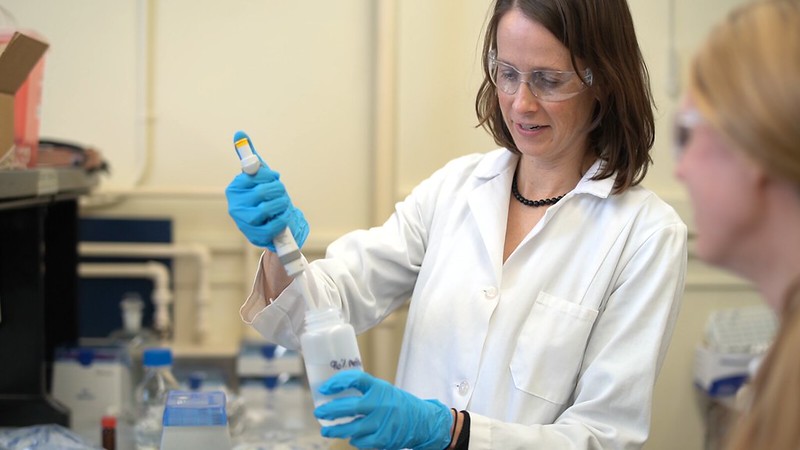
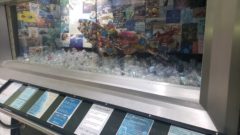
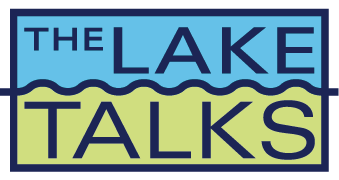 Topics include aquatic invasive species, eating local fish and Green Bay’s ecosystem
Topics include aquatic invasive species, eating local fish and Green Bay’s ecosystem